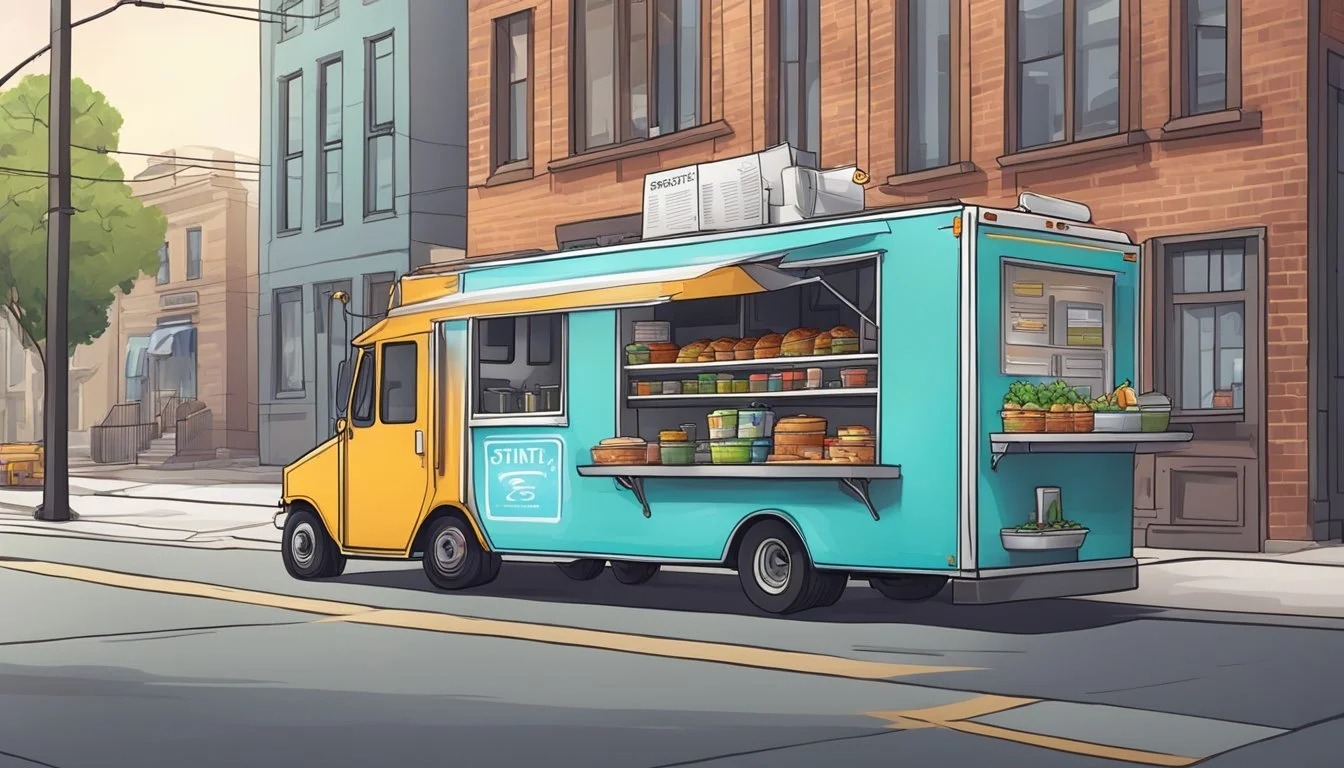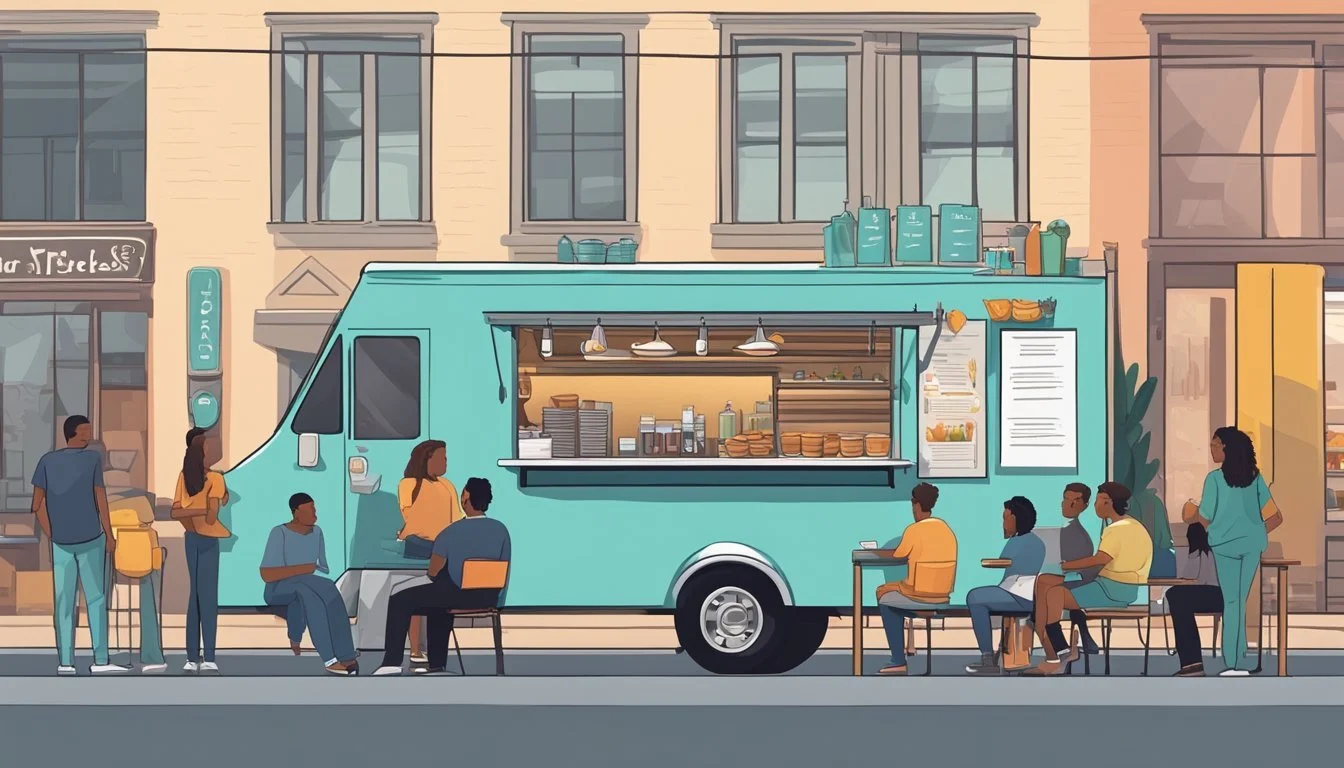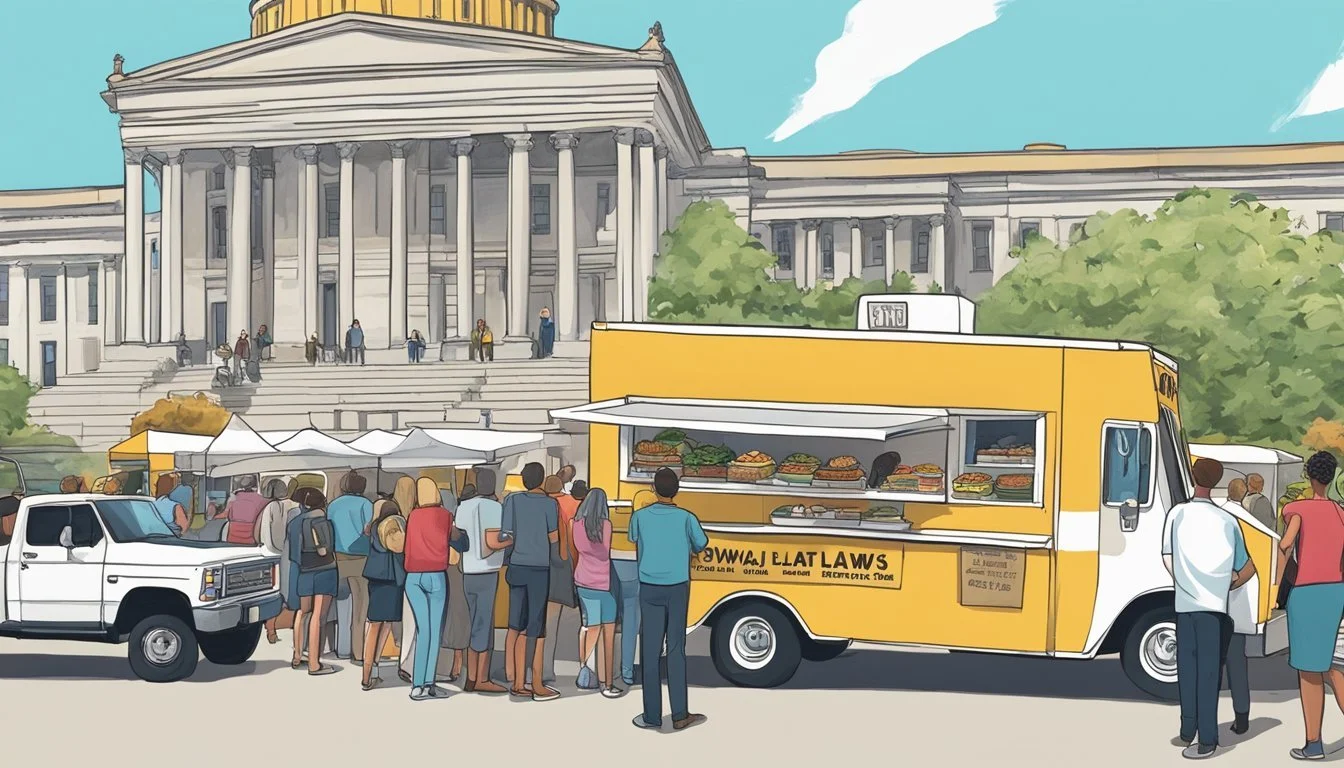Food Truck Laws in Iowa
Navigating Regulations for Mobile Vendors
Operating a food truck in Iowa entails navigating through a specific set of laws and regulations that ensure the safety and fair operation of mobile food vendors. Each food truck must acquire the appropriate licenses and permits, which include ensuring compliance with food safety standards, local ordinances, and state regulations. Critical requirements encompass obtaining a food service license from the Iowa Department of Inspections and Appeals, adhering to health and safety guidelines, and meeting the standards for waste disposal and temperature control for food.
In Iowa, the food truck industry is also governed by laws that extend beyond food handling. Operators must be cognizant of tax laws, parking regulations, and other municipality-specific ordinances that can affect where and how they conduct their business. This ensures that while food trucks contribute to the local economy and culinary scene, they do so in a responsible manner that aligns with public health and safety priorities.
Every year, these regulations are subject to changes and updates, which necessitates food truck owners to stay informed and compliant. As the industry evolves, so do the measures to protect consumers and maintain a level playing field for all food service providers. For potential and current food truck entrepreneurs, understanding these legal requirements is the foundation for establishing a successful and lawful mobile food enterprise in the state.
Starting a Food Truck Business in Iowa
When launching a food truck business in Iowa, critical steps involve conducting market research, drafting a comprehensive business plan, and selecting a unique food truck concept that resonates with local tastes.
Understanding the Market
Market research is the cornerstone of any successful food truck in Iowa. One must assess the competition and the needs of the local population, taking into account the popularity of different cuisine types. In Iowa, the appetite for mobile food business can vary greatly between urban and rural areas. Thorough analysis helps in pinpointing ideal locations for operation and understanding peak food traffic hours.
Creating a Business Plan
A solid business plan is vital for any new food truck looking to secure funding in Iowa. It should detail the business structure, whether it’s a limited liability company (LLC) or a sole proprietorship, and outline the financial aspects, including initial investment for the truck, kitchen equipment, and ingredients. A comprehensive plan also addresses how the food truck will comply with regulations, secure a business license, and manage prepackaged food guidelines.
Initial Costs Breakdown:
Food Truck Purchase/Rental: $xx,xxx - $xx,xxx
Kitchen Equipment: $xx,xxx
Inventory and Ingredients: $x,xxx - $xx,xxx
Permits and Licenses: $xxx - $x,xxx
Choosing a Food Truck Concept
The concept of the food truck should reflect both the entrepreneur's passion and the identified market needs in Iowa. Choices could range from regional favorites to more exotic cuisines, with consideration given to dietary trends and restrictions. One should decide whether to operate seasonally or year-round, as Iowa's weather can influence menu options and ingredient availability. The chosen concept will also inform branding and marketing strategies, setting the stage for long-term success.
Licensing and Registration
In Iowa, setting up a food truck business involves detailed licensing and registration, adhering to specific requirements mandated by local laws. Entrepreneurs must navigate through a series of permits and licenses, including obtaining an Employer Identification Number (EIN) for tax purposes and securing a mobile food unit license, to legally operate a food truck.
Business Registration and EIN
Food truck owners in Iowa must register their business and obtain an Employer Identification Number (EIN) from the IRS. This federal tax ID not only facilitates tax administration but also allows owners to open a business bank account and hire employees. Registering a business also involves selecting a business structure, such as an LLC or sole proprietorship, which influences tax obligations and liability.
Food Truck Licenses Required
To operate in Iowa, food trucks need several licenses similar to restaurants: a business license, food handlers permits for each employee, and a seller's permit. Additionally, there is a specific food truck license, often referred to as a mobile food facility permit, which explicitly allows the operation of food service vehicles.
Mobile Food Unit License Application
Applying for a Mobile Food Unit License is crucial and can be done through the Department of Inspections, Appeals, & Licensing's (DIAL) online food licensing system. The application requires information about the vehicle, commissary agreement, and compliance with food safety requirements. Food trucks must renew their licenses annually and ensure that they meet the state's criteria for operation.
Legal Regulations and Compliance
Food truck operators in Iowa must navigate a series of legal requirements to ensure they are fully compliant with the law. This involves adhering to statewide regulations and local ordinances while also meeting health and safety standards.
Adhering to Iowa Laws and Regulations
In Iowa, the Department of Inspections and Appeals is the primary regulatory authority for food trucks. Every food truck must obtain a license from this department and submit to inspections. Additionally, plan reviews are often a requirement before the food truck can begin operations. Failure to comply with regulations can result in penalties.
Local Ordinance and Zoning Laws
Local ordinances dictate where and when food trucks may operate. Each city or county in Iowa might have different zoning laws affecting location and hours of operation. It is essential for food truck owners to contact local zoning offices to understand these local ordinance particulars.
Health and Food Safety Regulations
The Iowa Department of Inspections and Appeals also enforces health and food safety regulations. Food trucks must comply with sanitation standards and food handlers may be required to possess a food handlers license. Regular complaint investigations ensure ongoing compliance. The Iowa Department of Agriculture and Land Stewardship plays a role in the oversight of food safety, working alongside the DIA to maintain standards.
Operational Aspects of Running a Food Truck
Running a food truck in Iowa involves navigating daily logistics, strategizing location and parking, and menu planning with a focus on food safety to prevent foodborne illnesses.
Day-to-Day Operations
Day-to-day operations for food truck owners encompass a myriad of tasks crucial for the smooth running of the business. They must ensure compliance with Iowa’s food safety regulations, which include maintaining clean and sanitized cooking areas to avoid any health violations. Sales tax considerations are also paramount; owners are responsible for the accurate collection and remittance of taxes generated from sales.
Location and Parking Strategy
The success of a food truck can hinge on its location and parking strategy. Food truck operators must navigate various city zoning laws that dictate where they can conduct business. It is critical to understand the specific regulations of each city or county, as these can greatly affect where trucks are allowed to park and serve customers during events and normal operations.
Menu Planning and Food Preparation
Menu planning and food preparation require a strategic approach to ensure efficiency and customer satisfaction. Food truck menus should be designed with minimal yet versatile ingredients to optimize storage space and speed up preparation time. Moreover, proper temperature control for food storage is central in preventing foodborne illnesses and must be meticulously managed. The focus on high-quality, safe ingredients is a non-negotiable aspect of food preparation for food trucks.
Inspections and Food Safety
In Iowa, the food safety landscape is shaped by stringent inspections and regulations ensuring public health. This section addresses the core components of food truck inspections, detailing routine checks by authorities and pre-operational inspection standards.
Routine Inspections by Authorities
Food trucks in Iowa are subject to routine inspections by the Iowa Department of Inspections, Appeals, and Licensing. These inspections are crucial for the ongoing compliance with the Iowa Food Code. Inspectors assess various aspects of operation, such as food handling, storage temperatures, and overall cleanliness. These inspections can occur unannounced, and their frequency depends on various factors including the type of food service and history of compliance.
Pre-Operational Inspection Standards
Before hitting the road, food trucks must pass a pre-operational inspection. This inspection is a thorough review ensuring the vehicle meets specific food safety regulations. Inspectors evaluate the condition of the truck, the adequacy of refrigeration and storage facilities, sanitation measures, and proper installation of cooking equipment. Only upon successfully meeting these standards can a food truck begin serving customers in Iowa.
Financial Management
In the food truck industry, financial planning is crucial. A food truck entrepreneur in Iowa must be well-equipped to handle startup costs and manage ongoing expenses with precision to ensure sustainability and profitability of the business.
Handling Startup Costs
Iowa food truck operators face various initial expenses that can accumulate quickly. These costs include:
License fees: Necessary for legal operation, the fees can vary depending on the specific licenses and permits required in Iowa. For more details on these fees, visit Starting a Food Truck Business in Iowa 2024.
Vehicle cost: Purchasing or leasing a food truck represents a substantial initial investment.
Equipment: Costs for kitchen appliances and initial food supplies.
Insurance: Mandatory coverage to protect against potential liabilities.
One may consider securing funding, like food truck loans or local grants, to cover these upfront costs. The IASourceLink guides potential owners through various funding avenues available in Iowa.
Managing Ongoing Expenses
Once the food truck is operational, they have to manage continuous expenses that include:
Raw materials: Frequent replenishment of inventory as per the menu requirement.
Maintenance: Regular vehicle and equipment upkeep.
Wages: Payment for staff if the truck employs additional workers.
Utilities: Costs for services such as electricity, water, and gas.
License renewals: Periodic fee for maintaining the validity of necessary permits and licenses.
Effective management of these costs is imperative to stay profitable. Tracking gross sales and understanding the food truck’s financial health is a continuous process. Proper budget allocation can be the difference between a thriving business and a failing one. Bookkeeping aids and financial software are recommended for meticulous financial tracking.
Marketing and Promotion
In the competitive food truck industry, effective marketing and promotion are essential for standing out in the crowd. A focused strategy can elevate a food truck from a mere vendor to a citywide sensation, attracting customers to each event.
Building a Brand
Every food truck must develop a distinctive brand identity. This includes a memorable name, a unique logo, and consistent use of colors and fonts across all platforms. A food truck's brand should encapsulate its culinary style and personality, making it easily recognizable on the streets and in social media feeds. For example, a taco truck could use vibrant colors and a playful font to convey its fun and festive vibe.
Marketing Strategies for Food Trucks
When considering marketing strategies for food trucks, owners should leverage both online and offline channels. Online efforts can include:
Website Development: A simple, mobile-friendly website showcasing the menu, schedule, and catering information.
Social Media: Regular updates on platforms like Instagram and Twitter to share location, special menu items, and engage with followers through polls or contests.
Offline marketing efforts might encompass:
Local Events: Participating in city events, fairs, and food truck rallies to gain exposure.
Menu Board: An attractive, clear menu board that communicates offerings at a glance.
Each strategy should focus on what sets the truck apart and why their food is a must-try experience.
Networking and Partnerships
Forging relationships with other businesses is crucial. A food truck can partner with:
Local Breweries or Wineries: Setting up at these locations on a rotating basis.
Event Planners: Being a preferred vendor for outdoor events, weddings, and corporate gatherings.
Networking through business associations or local chambers of commerce is another way to build connections that may lead to lucrative opportunities. Collaborations with fellow food truck owners can also be beneficial, as it can foster a sense of community and lead to joint event participation.
Additional Considerations
When operating a food truck in Iowa, owners must navigate both alcohol regulations and the specific requirements for participating in local events. Adherence to these regulations ensures compliance and the smooth operation of their mobile dining venture.
Alcohol Permits and Regulations
Food truck owners who wish to serve alcohol must meticulously follow Iowa's alcohol laws. Obtaining a liquor license is mandatory for any establishment that serves alcohol, which includes food trucks. In Iowa, one must secure an alcoholic beverage license before serving any liquor. The licenses can significantly differ based on whether the food truck serves only beer and wine or a full range of alcoholic beverages. It is imperative to remember that each locality within Iowa may have additional ordinances that govern alcohol sales.
Eligibility Requirements: Applicant must be of legal age and have no felony convictions.
License Types:
Class "B" Beer Permit (includes craft beer)
Class "C" Liquor License (includes full liquor service)
Renewal: Licenses must be renewed annually.
Compliance: Regular inspection and adherence to state and local laws.
Participating in Local Events and Farmers Markets
Food trucks are a popular fixture at many of Iowa's community events and farmers markets, offering a diverse array of foods and contributing to the local food scene. These events are subject to the Food Safety Bureau's regulations, and obtaining the appropriate event permits is essential. Event organizers can sometimes facilitate the permit application process for vendors.
Permit Application:
Contact event organizer for specifics
Completion of temporary or mobile food establishment permit
Regulations:
Compliance with local health and safety standards
Proper waste disposal and food handling
In conclusion, while alcohol permits come with strict laws and additional scrutiny, participation in local events requires awareness of event-specific regulations. Food truck owners operate effectively by staying informed of these considerations.







